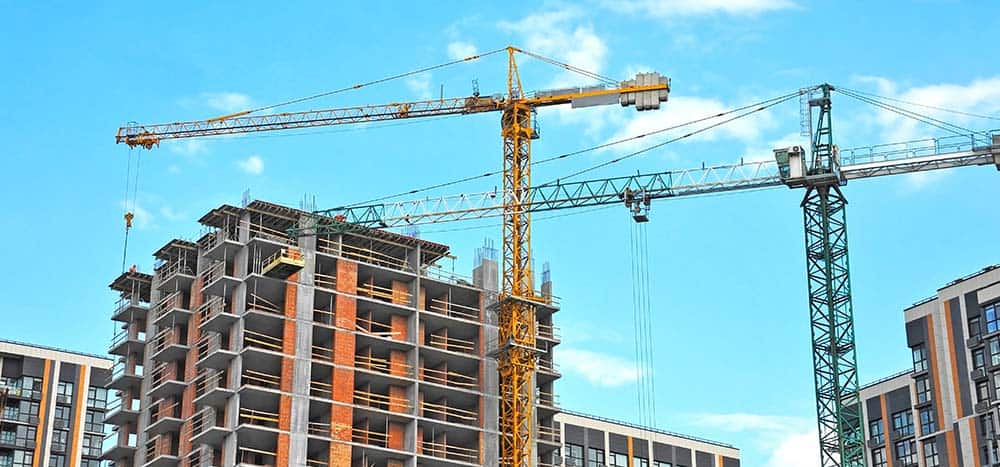
In the early months of 2020, COVID-19 was, for the most part, considered to be a global supply chain problem. Contractors who considered themselves exposed might ask for an extension of time for such impacts.
By April, project owners and contractors in some states in Australia were grappling with the removal of the limitation on working days under development consent conditions to facilitate COVID-safe working conditions by enabling work to potentially be spread across all seven days of the week. Depending on how work hours and days were mandated in the contract, the result was different. As it was, labour rates meant that not many took advantage of the potential for site work on Sundays in any event.
COVID-safe working and proximity to a state border (where contractors got an early taste of labour supply problems as their workers couldn’t get to the site) caused delays not anticipated in contracts entered into before April 2020. So at the same time as the insurance industry was grappling with what the pandemic meant under their contracts and the situation deteriorated, project participants were struggling with how these sorts of issues should be addressed.
What was treated as a supply chain risk in early 2020 subsequently became recognised as a whole of project risk and the approaches to ameliorate or allocate the risk varied significantly. Everything from an extension of time without cost to an extension of time with cost to a full COVID-impact protocol emerged as options. However, project owners were in the main reluctant to wholly accept delay costs arising from COVID-19.
This didn’t stop once the industry reopened. Parties on projects were left to grapple with both supply chain and labour supply problems causing delays to the works. This impact was difficult to assess and, depending on how COVID-19 had been catered for in the contract, the entitlements were not always clear.
Reflecting on many COVID-impacted projects, the contracts where COVID-19 was shoe-horned into the existing contract frameworks (for example, as a qualifying cause) or not at all, presented a new difficulty as contractors who were severely exposed pushed boundaries in making claims, creating a lot of work as well as a lot of ill-feeling.
Furthermore, as much of the industry operates on traditional adversarial contracts that leave it entirely to the contractor to solve problems of program and completion, it was difficult to open a dialogue on how the impact could be ameliorated. As a result, many project owners found themselves frustrated, with their stakeholders asking questions but having no ability to be involved in any solutions on site.
Questions are often asked if we can contract for projects in a better way. The reality of the adversarial contracting models showed itself well and truly in recent months as anxious project owners were faced with inflexible consequences and shut out of solutions. Those however who had treated COVID-19 as a new and unique risk with a collaborative model for managing the risk had a better experience. This begs the question – was it just the novelty of the situation that meant that collaboration worked so well, or is this a sign that a collaborative model improves project outcomes?

Helena Golovanoff
Partner
Holding Redlich
helena.golovanoff@holdingredlich.com
+61 2 8083 0443
Helena is a partner in Holding Redlich’s Construction and Infrastructure group. With over 15 years of experience in large scale construction and commercial disputes throughout Australia, she provides dispute resolution, transaction and advisory services. Helena has particular expertise in complex negotiations and contract structuring, including drafting and negotiating development agreements, design and construction contracts, project delivery agreements, early contractor involvement agreements, and consultancy agreements.

Troy Lewis
Partner and National Head of Construction, Infrastructure and Projects
Holding Redlich
troy.lewis@holdingredlich.com
+61 7 3135 0614
Troy is the National Head of the Construction, Infrastructure and Projects team with over 20 years industry experience. He specialises in project delivery, risk mitigation and avoidance and construction disputes in all states and territories of Australia. Troy is a recognised industry leader in relation to the security of payment legislation Australia wide and his experience acting on behalf of both Claimants and Respondents as well as training industry participants and adjudicators ensures that he and the entire Holding Redlich construction, infrastructure and projects team are always across the tips, tricks and traps that exist in the legislation and are always one step ahead.

RHTLaw Asia is a member of ONERHT, an integrated network of multidisciplinary professional and specialist services which empowers stakeholders to achieve purposeful growth.
© 2024 RHTLaw Asia LLP. All Rights Reserved.
| Cookie | Duration | Description |
|---|---|---|
| cookielawinfo-checkbox-analytics | 11 months | This cookie is set by GDPR Cookie Consent plugin. The cookie is used to store the user consent for the cookies in the category "Analytics". |
| cookielawinfo-checkbox-functional | 11 months | The cookie is set by GDPR cookie consent to record the user consent for the cookies in the category "Functional". |
| cookielawinfo-checkbox-necessary | 11 months | This cookie is set by GDPR Cookie Consent plugin. The cookies is used to store the user consent for the cookies in the category "Necessary". |
| cookielawinfo-checkbox-others | 11 months | This cookie is set by GDPR Cookie Consent plugin. The cookie is used to store the user consent for the cookies in the category "Other. |
| cookielawinfo-checkbox-performance | 11 months | This cookie is set by GDPR Cookie Consent plugin. The cookie is used to store the user consent for the cookies in the category "Performance". |
| viewed_cookie_policy | 11 months | The cookie is set by the GDPR Cookie Consent plugin and is used to store whether or not user has consented to the use of cookies. It does not store any personal data. |